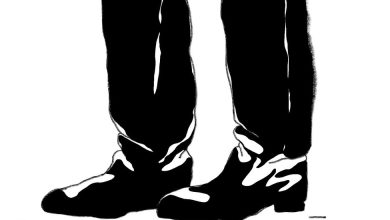How I Freed Up Time to Daydream

There’s a whole genre of articles in which writers like me leave social media and report on how their lives transformed. I swore I wouldn’t add to it. I swore that if I went off Twitter or other social media, I would not write about it. But here I am, writing about it. And I’m doing so because it didn’t change my life in quite the way that I expected or many of these essays promised it would.
I enjoyed Twitter. I genuinely did. I enjoyed connecting with others and hearing what people were talking about throughout the world. I miss it. The problem is I loved it a little too much. I’d find myself checking it when I should be working, running late to my daughters’ school events because I tried to fit in a quick peek or staying up far too late surfing vast oceans of information, tired and barely interested but unable to resist the glowing undertow pulling me in.
I am part of a small group of friends from across the country who meet together monthly over Zoom and once a year or so in person. We talk through our lives. We pray for one another. We have permission to give one another unsolicited advice. In November, they all encouraged me to drop my Twitter habit, at least for a little while. I jokingly called it an intervention. It wasn’t far from it. My life was overfull, and this was something I could cut out. I complied, albeit hesitantly and with a bit of whining, because I trust my friends and their wisdom.
So I blocked Twitter. A colleague tweets articles I write — including this newsletter — from my account. Still, I can’t see Twitter even if I tried (and I have tried). I went from being on it nearly every day to being off it for two months now.
This is the part of the “getting off social media changed my life” essay where I say that I have discovered Zen-like quiet and peace, how I started exercising, lost five pounds and found new focus and freedom from anxiety. But that did not happen. Not yet, anyway.
Being offline didn’t make my life a bastion of meditative bliss. I still have three young loud kids, a job, a church, a spouse and a messy house. I’m still busier than I’d like to be; cutting out social media did not lead to as much extra time as I’d hoped or thought it would. I still freebase distraction in ways that are compulsive and foolish. (My new time waster of choice is Zillow and other real estate sites. I suspect if I block that, I’ll find something else.)
But there is one way that leaving Twitter has benefited my life and my mind. The times when I checked Twitter were often the transition points in my day: when I sat down to work or I finished a task, waiting at a light or in line or to pick up my kids from school, going to the bathroom, the few minutes before I fell asleep. Freeing up those small, seemingly inconsequential moments has been transformative. These moments of quiet and emptiness throughout the day are nothing I really considered before. I don’t schedule them in my calendar, and I didn’t notice their departure when I began going online. But leaving these small moments of my day unfilled changed how I walk through time.
My new motto born of this experience is: Guard the margins — those seemingly unimportant parts of our day and time. Margins on a page can seem like wasted space (wouldn’t it save trees if we wrote or printed across the whole page?), but all that blank space helps us to read and take in information. We need the blank spaces. We need moments when we get no input, no news, no videos, no memes, no opinions. We need moments when we space out, daydream, when our minds go blank.
In the few minutes before dinner or on my way to my car after work, instead of quickly checking on trending topics, I may wave to a neighbor or get an idea about how to fix a paragraph I was working on or hear birdsong. Waving to my neighbor will likely not change her or my life. Fixing that paragraph won’t revolutionize my career. Noticing birdsong will not help me better understand national politics or the violence in Kazakhstan. But these seemingly trivial moments of connection, mental space and beauty change me slowly over time. They weave a life worth living, thread by thread.
These moments aren’t always peaceful. In small, blank moments, I may feel gratitude or delight, but just as often, I recall a hurtful conversation or notice that I feel tired or lonely. But this, too, is part of the gifts of these small moments. If we fill up those few minutes with distraction, we numb ourselves in tiny doses and cut ourselves off from our interior lives.
These seemingly insignificant breaks in the day help us emotionally and mentally; they give our prefrontal cortex a needed break. And they’ve also meant something to me spiritually. “The whole life of Jesus is wrapped in silence and mystery,” wrote Cardinal Robert Sarah. “If man wants to imitate Christ, it is enough for him to observe his silences.”
Silence, as I’ve written in this newsletter, is an essential spiritual practice. But I often envision a life of practicing silence as one with long stretches of quiet, swaths of monastic discipline and solitude, reams of uninterrupted contemplation. For me, that kind of life is completely out of reach and will remain so for the foreseeable future. I can fall into all-or-nothing thinking, in which if I can’t have the monastery, I end up using my lunch break to binge-lurk in online political spats or watch cute animal videos.
But leaving small moments empty, silent and, in some sense, useless is a tiny taste of a life “wrapped in silence and mystery.” Guarding the small silences in the corners of my day subtly rewires my brain, teaching me to allow my time and my thoughts to lie fallow for a minute, to be a little bored and a little blank.
My friend Timothy is a studied musician. He is a violist. I asked him about the function of small breaks in music — of rests. He said that music, like a living creature, needs to breathe and these small breaks, however seemingly brief and unimportant, are what allows a piece of music to live and take flight. He told me that if you filled up every rest in a piece of music, listening to it would be exhausting and would eventually descend into an “undifferentiated mass” that we can’t really take in, attend to or enjoy. Rests in music, even short ones, create rhythm, variety and narrative. They help, he said, guide and change the course of a song.
But he said you have to learn to “play the rests.” It seems easy. It doesn’t require technical skill, the way that it does to play a scale or an arpeggio. But to make good music, you have to learn to honor the small breaks in it.
In the same way, our days, which are so full of work and thinking, of arguing and learning, of disappointments and confusion, of striving and creating, must have moments when nothing much is happening. I filled those moments with loud, funny, angry and interesting voices online. But leaving these small moments empty is what makes the difference between noise and music.
Play the rests. Guard the margins. They matter.
Have feedback? Send a note to [email protected].
Tish Harrison Warren (@Tish_H_Warren) is a priest in the Anglican Church in North America and author of “Prayer in the Night: For Those Who Work or Watch or Weep.”





